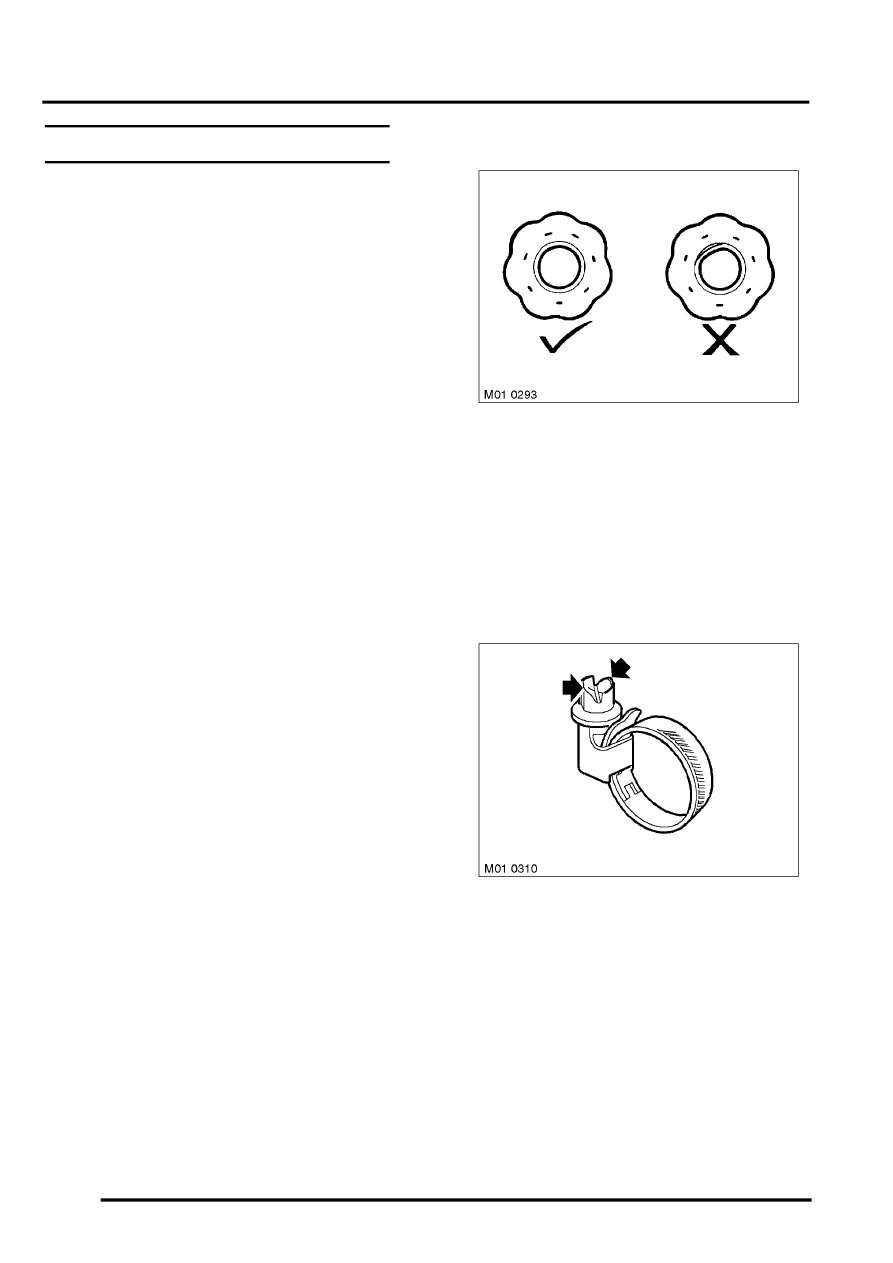L322 Range Rover Service Procedures

GENERAL INFORMATION
03-14
Flexible Pipes and Hoses
General
When removing and installing flexible hydraulic pipes
and hoses, ensure that the following practices are
observed to ensure component serviceability.
l
Before removing any brake or power steering
hose, clean end fittings and area surrounding
them as thoroughly as possible.
l
Obtain appropriate plugs or caps before
detaching hose end fittings, so that the ports can
be immediately covered to prevent the ingress
of dirt.
l
Clean hose externally and blow through with
airline. Examine carefully for cracks, separation
of plies, security of end fittings and external
damage. Reject any faulty hoses.
l
When refitting a hose, ensure that no
unnecessary bends are introduced, and that
hose is not twisted before or during tightening of
union nuts.
l
Fit a cap to seal a hydraulic union and a plug to
its socket after removal to prevent ingress of
dirt.
l
Absolute cleanliness must be observed with
hydraulic components at all times.
l
After any work on hydraulic systems, carefully
inspect for leaks underneath the vehicle while a
second operator applies maximum brake
pressure to the brakes (engine running) and
operates the steering.
Fuel system hoses
All fuel hoses are made up of two laminations, an
armoured rubber outer sleeve and an inner viton
core. If any of the fuel system hoses have been
disconnected, it is imperative that the internal bore is
inspected to ensure that the viton lining has not
become separated from the armoured outer sleeve.
A new hose must be fitted if separation is evident.
Fuel system hose clips
Certain fuel system hoses are of the 'break-off head'
type, where a portion of the slot in the screw head
shears off when the clip is tightened to a pre-
determined torque. These clips may be removed
using a screwdriver and must be replaced with a new
clip of the same type. Clips must be tightened until
the portion of the slot shears off. Do not attempt to
tighten clips by any other method.
